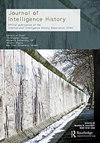COMBLOC计算的早期情报评估
引用次数: 1
摘要
摘要冷战期间,以间谍为驱动的西方技术收购在华约服务的计算机科学和技术发展中发挥了关键作用。美国、英国和其他盟国认识到,这一新领域在创建时与密码学、导航、武器制导以及许多其他军事和军民两用应用密不可分。因此,自由世界大国实施了出口管制限制,旨在阻止设备和知识的转让,以保持来之不易的优势,而最近的战争经验表明,在战斗中创新和适应的巨大压力下,这种优势可能会转瞬即逝。尽管有这样的控制,苏联的外国情报部门还是提供了关键的早期访问,这导致了系统的重复,这些系统从一开始就在目的和质量上具有一定的可比性,并且在未来研发道路的漫长阴影下显得更大。西方情报部门并没有对这种行为视而不见;通过独特的收集方法和持续的分析工作,他们试图追踪苏联计算机的状况及其在战略、军事和经济应用中的作用。这一努力实际上是网络情报任务的开端。本文章由计算机程序翻译,如有差异,请以英文原文为准。
Early intelligence assessments of COMBLOC computing
ABSTRACT Espionage driven acquisition of Western technology played a key role in the development of computer science and technology for Warsaw Pact services during the Cold War period. US, UK, and other Allied nations, recognized this new field was inextricably linked at its creation to cryptography, navigation, weapons guidance, and a host of other military and dual-use applications. As a result, the Free World powers imposed export control restrictions that were intended to embargo the transfer of equipment and knowledge, in order to preserve hard-won advantage that recent wartime experience had taught could be fleeting under the intense pressures of innovation and adaption in combat. Despite such controls, Soviet foreign intelligence services provided critical early access that led to duplication of systems that were to some degree comparable in purpose and quality from the outset, and loomed larger still in the long shadow of intended future R&D pathways. Western intelligence services were not blind to this behavior; through unique collection approaches and sustained analytic efforts, they sought to track the state of Soviet computing and its role in strategic, military, and economic applications. This effort was effectively the dawn of the cyber intelligence mission.
求助全文
通过发布文献求助,成功后即可免费获取论文全文。
去求助
来源期刊

Journal of Intelligence History
Arts and Humanities-History
CiteScore
0.50
自引率
0.00%
发文量
21
期刊介绍:
The Journal of Intelligence History is the official publication of the International Intelligence History Association (IIHA). It is an international peer-reviewed journal that aims to provide a forum for original research on the history of intelligence services, activities and their wider historical, political and social contexts. The journal aims to publish scholarship on all aspects of the history of intelligence, across all continents, countries and periods of history. We encourage submissions across a wide range of topics, methodologies and approaches.
 求助内容:
求助内容: 应助结果提醒方式:
应助结果提醒方式:


